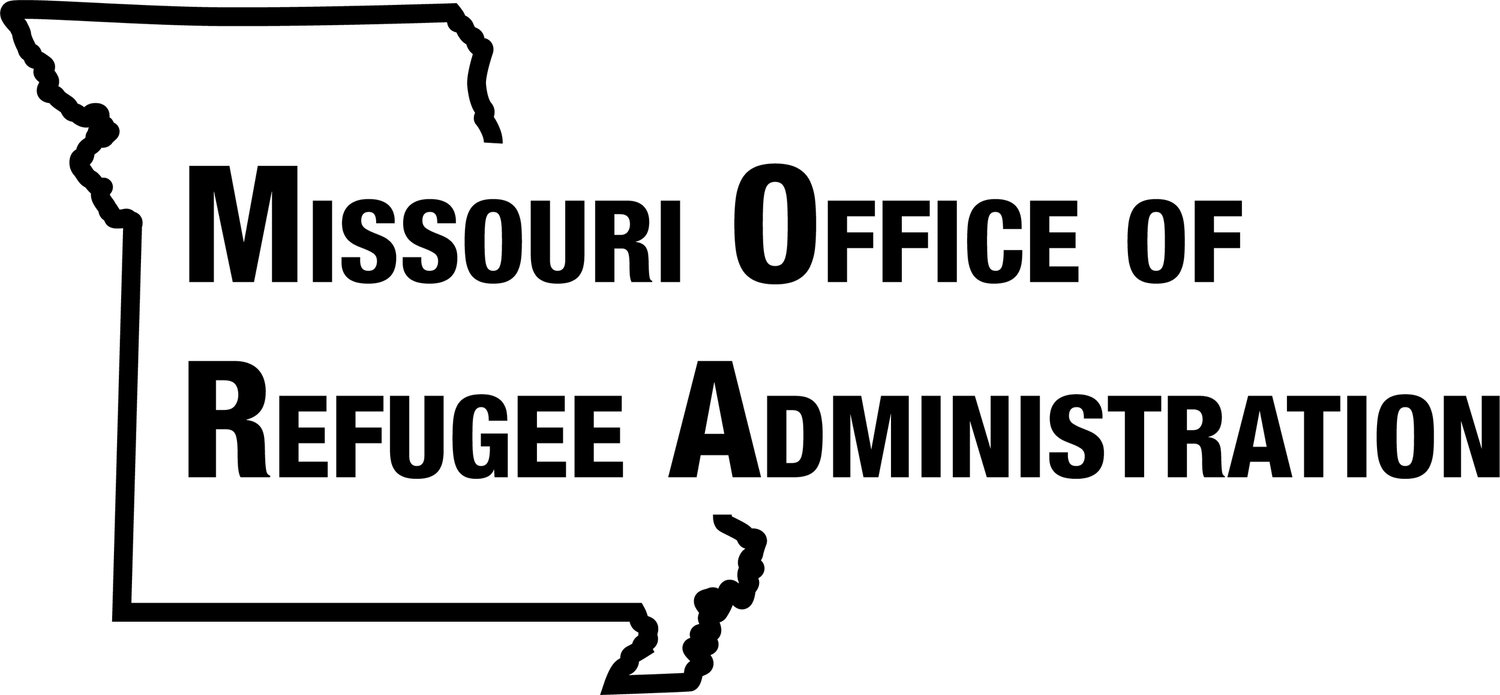Welcoming LGBTQ+ Refugees to Missouri
By Marisa Tesoro
Educate to create.
That’s the approach for the LGBTQ+ refugee project, as it has been known colloquially among MO-ORA staff.
“I want Missouri to be a welcoming state for refugees who are also LGBT,” said Paul Costigan, the State Refugee Coordinator for Missouri. “I know that KC and St. Louis already have a multitude of organizations that work with the LGBT community. So it’s just taking another step in working with LGBT refugees, too.”
Costigan recruited Misha Smith to lead this effort. When Smith first started as the Missouri Resettlement Activities Coordinator for MO-ORA in April 2022, Costigan asked if they would be interested in developing an initiative to welcome LGBTQ+ refugees in Missouri. They immediately said yes.
Now, the two are working to identify and educate existing LGBTQ+ organizations, service providers and potential partners at the local, state, and federal levels and provide ongoing trainings on what it would mean to also be safe and welcoming to refugees.
Ultimately, the goal is to start a database of agencies and allies, build up networks across the state, and develop peer-to-peer support groups and community groups to provide safe and welcoming spaces.
“Refugees who are also a part of the LGBTQ community say they want to be in a space where they can talk about both experiences,” Smith said. “Sometimes you’ll go into an LGBTQ group, and they only want to talk about that from the American perspective, but being a refugee or a migrant has an impact on all of that, too.”
The first, vital piece of this long-term effort is ongoing education.
Costigan and Smith hosted the first information session for prospective partners in December to provide an overview of the goals of the initiative, gauge interest, and provide time for questions and answers. During this session, they also provided a Refugee 101 training, covering the refugee resettlement process and why people leave their home and seek refugee status. Then they focused on cultural competency elements specific to LGBTQ+ refugees, such as cultural norms that may exist that prevent refugees from coming out once they’re here; how it could be harmful to be seen walking into a known LGBTQI+ support space; and how refugees might not be comfortable going into overtly queer spaces.
“We can’t just send people to a center we heard about, and someone sees them walk into this place and everyone knows. That could be dangerous,” Smith explained.
Smith goes on:
We want [potential partners] to understand how the intersectionality of being a refugee, being a non-white refugee, coming into the country and already having trauma from their experience with their gender or sexuality identity in their home country, coming here and dealing with ongoing discrimination in multiple ways and how it can impact them… There’s xenophobia, there’s homophobia, there’s transphobia, and then there’s their own inner struggle with knowing who they are and going against everything they’ve learned growing up. It’s also realizing that all of this also impacts safe housing, employment, public safety. There’s just so many areas it flows into.
In the current climate, building safe, supportive, and welcoming spaces for LGBTQ+ refugees can feel a bit overwhelming as there are about 20 bills targeting LGBTQ+ populations proposed in the Missouri House and Senate at the moment. See here, here, and here for examples.
But Smith and Costigan are trying to focus on one piece at a time. With a running document of ideas and the ORR Policy Letter regarding serving LGBTQI+ refugees to guide them, they forge on, working to develop partnerships and educate as they go, so that we might foster a welcoming Missouri for all.

